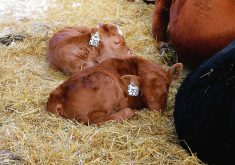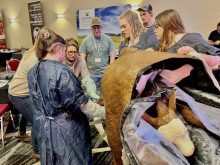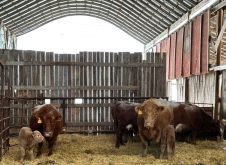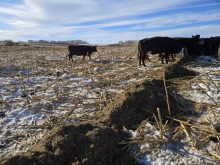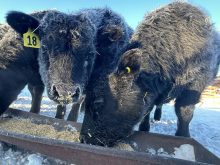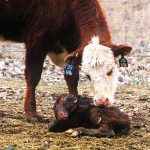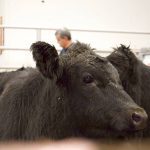Every beef producer in Manitoba has a stake in seeing TB eradicated in the area around Riding Mountain National Park
Farm groups often bemoan the fact that it can be difficult to work with governments. You will also often hear associations complain that one department is pursuing objectives that are diametrically opposite to the initiatives of another branch of government. Unfortunately, these complaints often contain a grain of truth.
However, it is also true that different levels of government, different departments and industry can work together for the benefit of the producers.
This was the case on Dec. 3 when the governments of Manitoba and Canada announced that a TB Co-ordinator position had been created to lead the effort to eliminate bovine tuberculosis from the Riding Mountain Eradication Area (RMEA).
Read Also
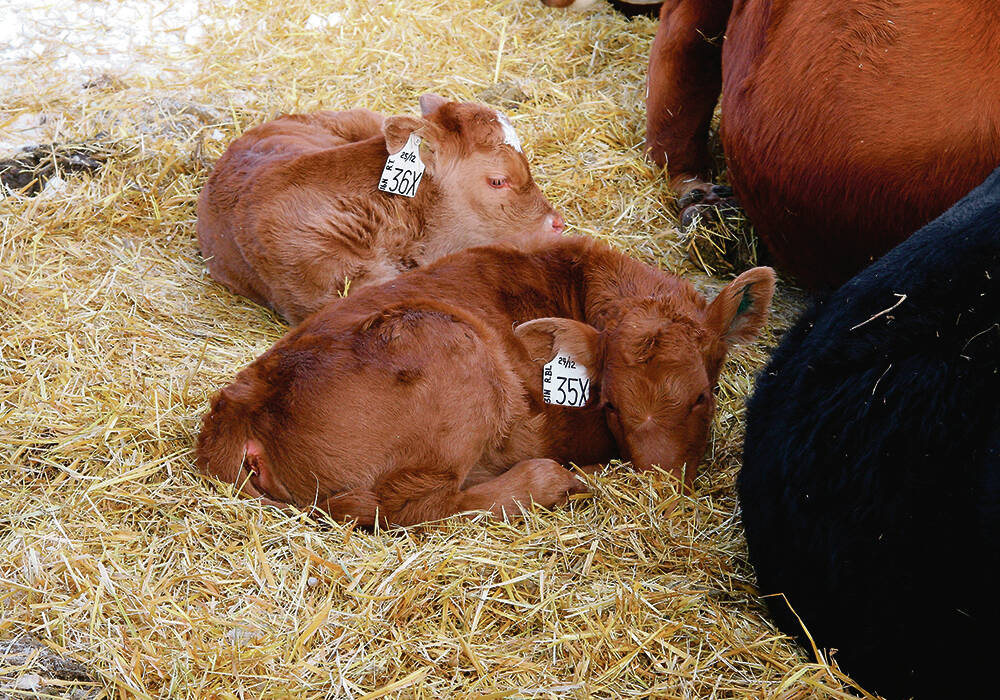
Biosecurity during calving: What’s your farm’s risk?
Cow-calf producers in Western Canada should have a well-designed biosecurity plan during calving season to reduce disease risks to the cattle herd.
Before you say to yourself, “I don’t live near Riding Mountain and this is not my issue,” I want to assure you that bovine TB in and around Riding Mountain National Park is an issue for every producer in Manitoba.
First, the presence of bovine TB in Manitoba reduces the value of almost every animal we want to export to the U.S. This is because many states require testing prior to shipments from Manitoba.
Second, bovine TB in Manitoba is one of those chronic issues that are driving producers out of our industry, making Manitoba a less competitive place to raise beef. This is happening at every stage in the production chain, from cow-calf producers through to feedlot operations. It is in everyone’s interest to see this disease driven from the province.
Manitoba Beef Producers (MBP) has long called for the appointment of a TB Co-ordinator. This was not an initiative of government. Rather, this was a case of departments listening to the producers on the land. MBP is pleased that governments have made our request a priority.
The TB Co-ordinator’s key role will be that of a facilitator. The co-ordinator will ensure that all departments are working in the same direction and that our goal of eradication of bovine TB is not delayed because of miscommunication. This has happened in the past.
Agreements between two levels of government, four ministers and five departments are not often easy to reach. This particular announcement involved co-operation between the Canadian Food Inspection Agency, Manitoba Agriculture, Food and Rural Initiatives, Manitoba Conservation and Water Stewardship, and Environment Canada. These five departments and the ministers who lead them have taken this important, co-ordinated step towards the eradication of bovine TB in Manitoba because they recognize the impact the disease is having on both cattle herds and wildlife.
Beef producers will continue to be asked to participate in bovine tuberculosis testing and carrying out best management practices to limit interactions between wildlife and their cattle in order to keep their herds disease free.
Those of you who are not familiar with the impact of TB might not realize the significant costs associated with testing and mitigation efforts. A number of years ago, Manitoba Agriculture, Food and Rural Initiatives estimated that testing cost beef producers at least $14 per head. At that time, MBP was able to convince the Government of Manitoba to provide $6 per head in compensation, which was matched by $1 per head from MBP. Producers were being compensated for half of the cost of testing.
Unfortunately, since that time even this level of compensation has declined as Manitoba has stopped offering the $6-per-head mustering fee. MBP will continue to ask the province to come back to the table to restore this compensation.
It is important to note that the cost of mustering and testing their herds is not the only cost imposed on producers in the RMEA. Unlike producers in other parts of the province, those around Riding Mountain National Park cannot take part in new business practices like bale or swath grazing. Producers in the RMEA must maintain barrier fencing, guard dogs and take other measures to limit interactions between wildlife and cattle. All of this has raised the cost of raising beef in the area.
Bovine TB has other negative impacts on profitability. Because of testing programs beef producers in the RMEA are often prevented from taking advantage of the best time to market their cattle. Their marketing plans revolve around the testing programs rather than markets.
While the appointment of the TB Co-ordinator won’t end the testing and mitigation measures overnight, it is a large step towards the goal of eradication.
Bovine TB in Riding Mountain National Park is just one example of a chronic issue that is putting the brake on the expansion of beef production in Manitoba. Ongoing flooding around our great lakes and in the Assiniboine Valley are other examples of long-term issues that need to be addressed by governments. Other examples of chronic problems include trade barriers such as country-of-origin labelling, predator control issues, unlimited public access to agricultural Crown lands and the potential for regulations (e.g., environment) that are based on public opinion rather than sound science.
Governments are working together with producers to move forward on the bovine TB issue. The same model of co-operation should be applied to other chronic issues holding back the development of beef production in Manitoba. Striking these issues off of the to-do list would benefit existing producers and encourage young people to enter the industry. Growth and prosperity for beef producers would also translate into opportunities in both our cities and rural communities.




